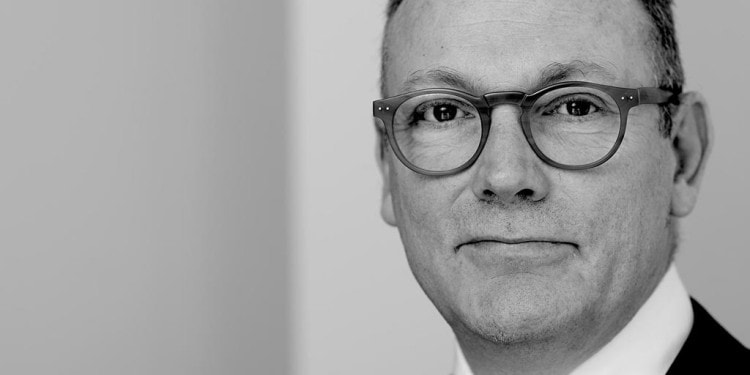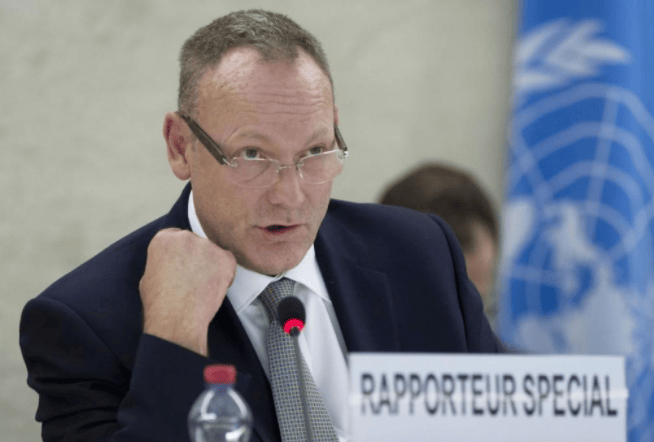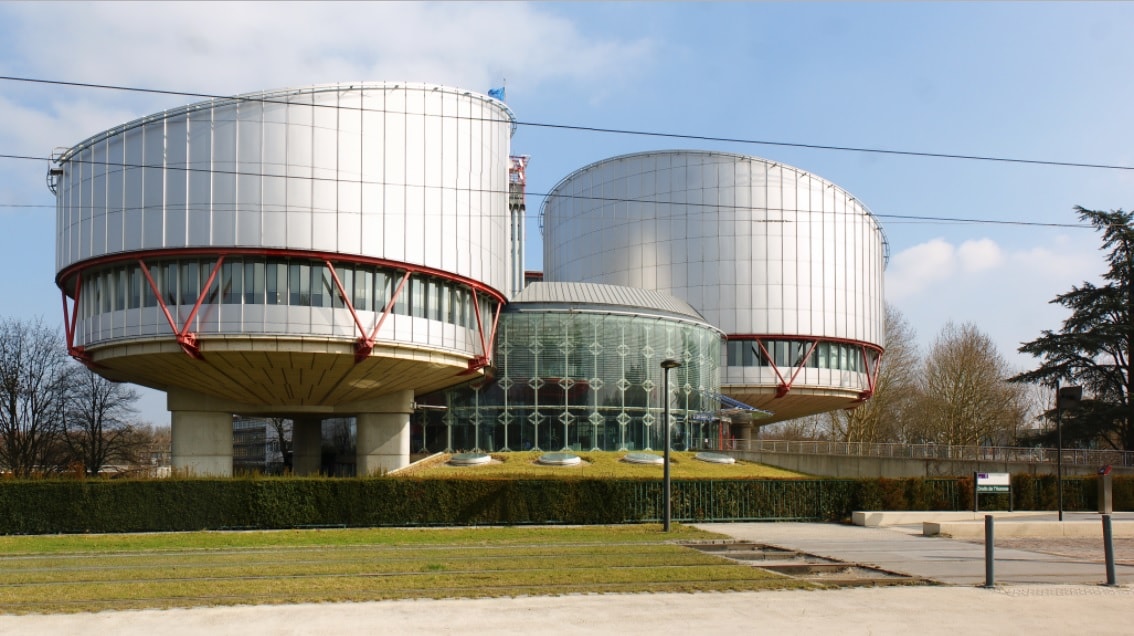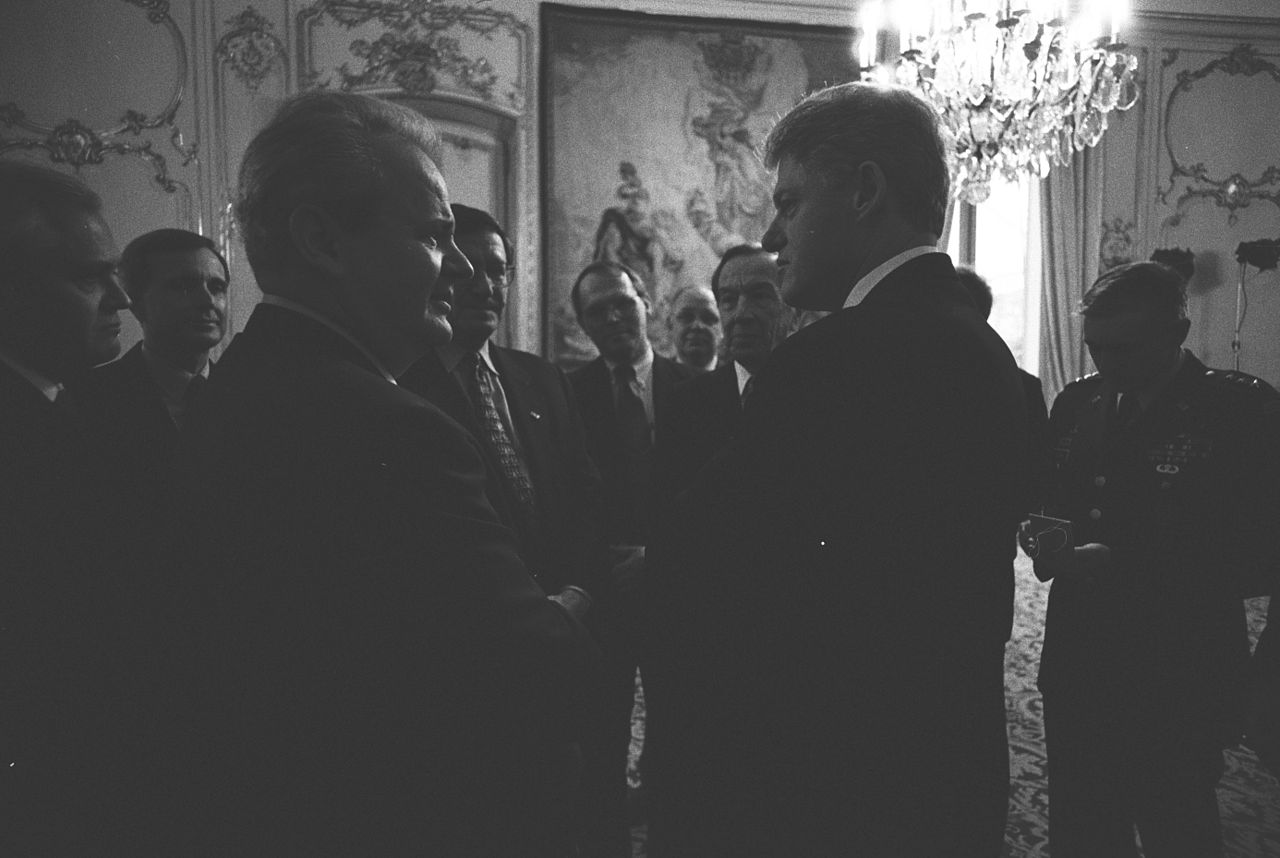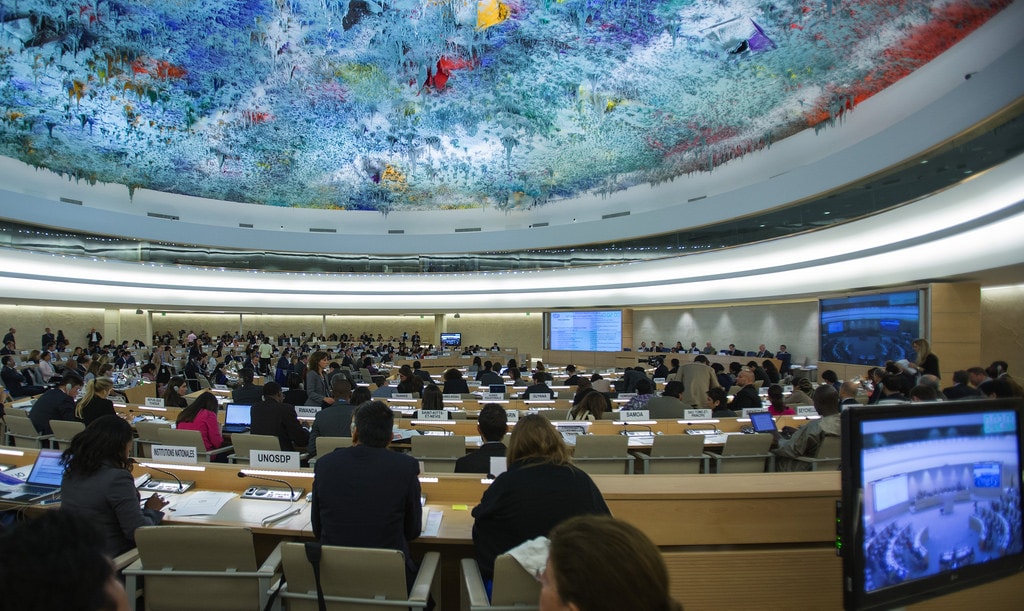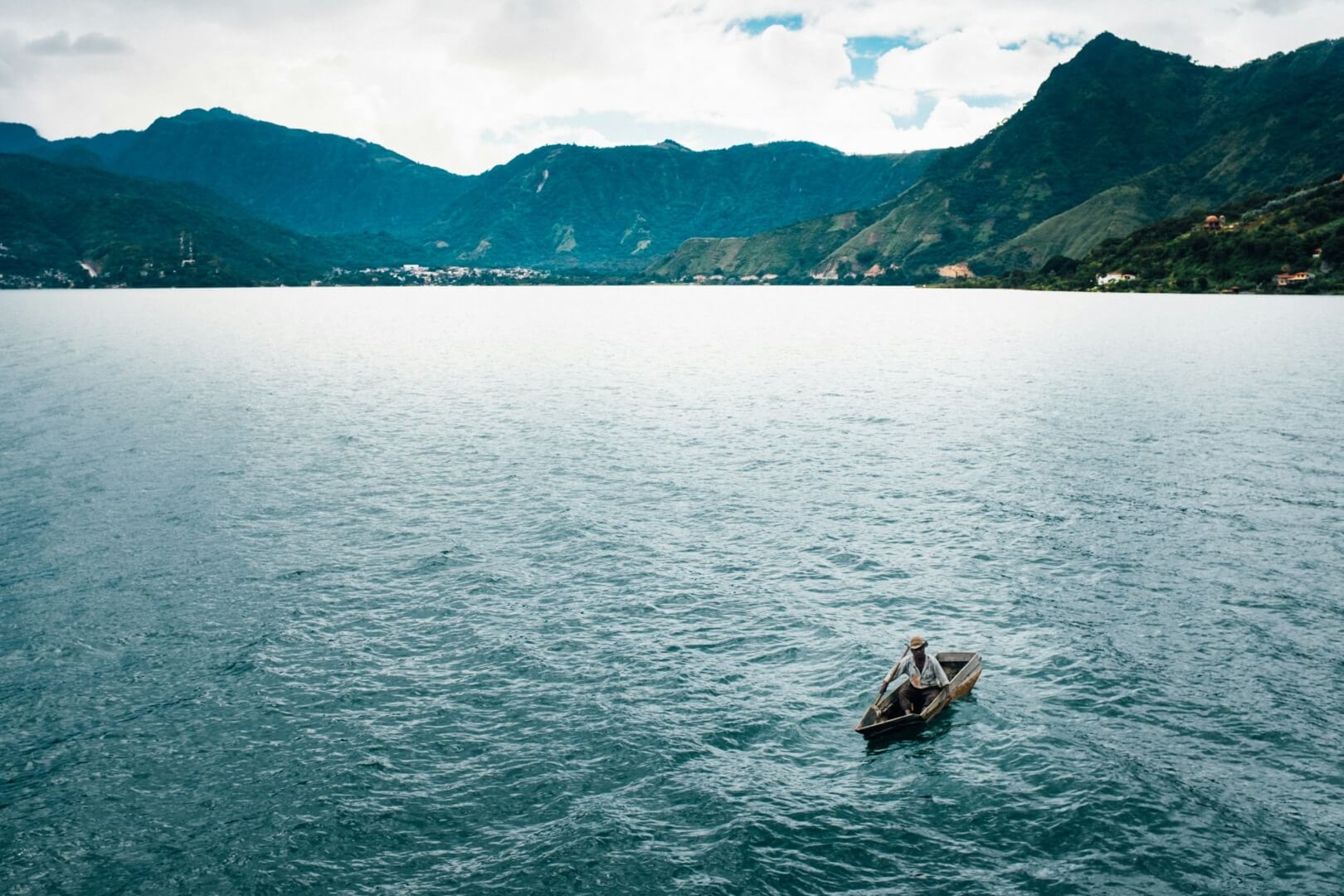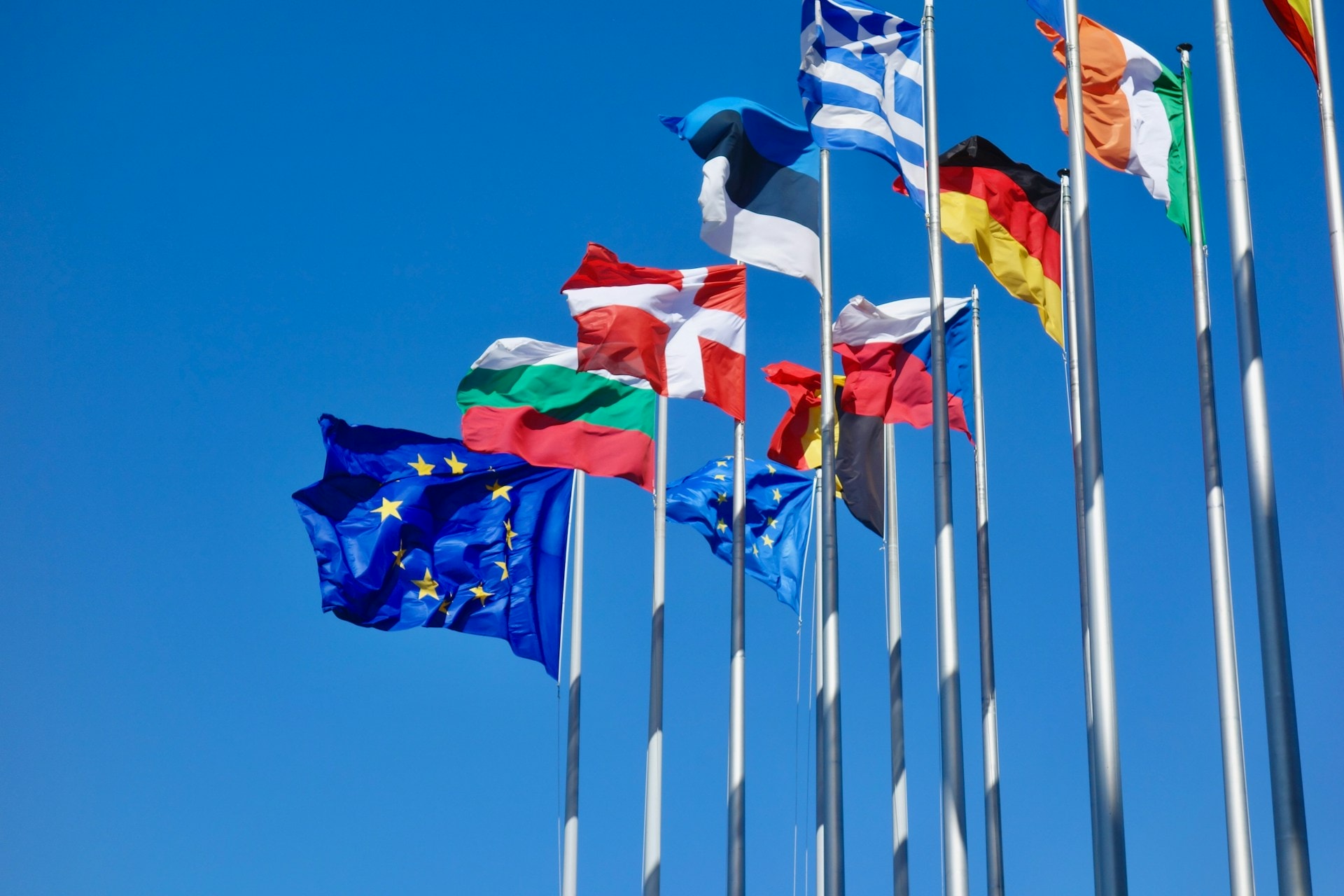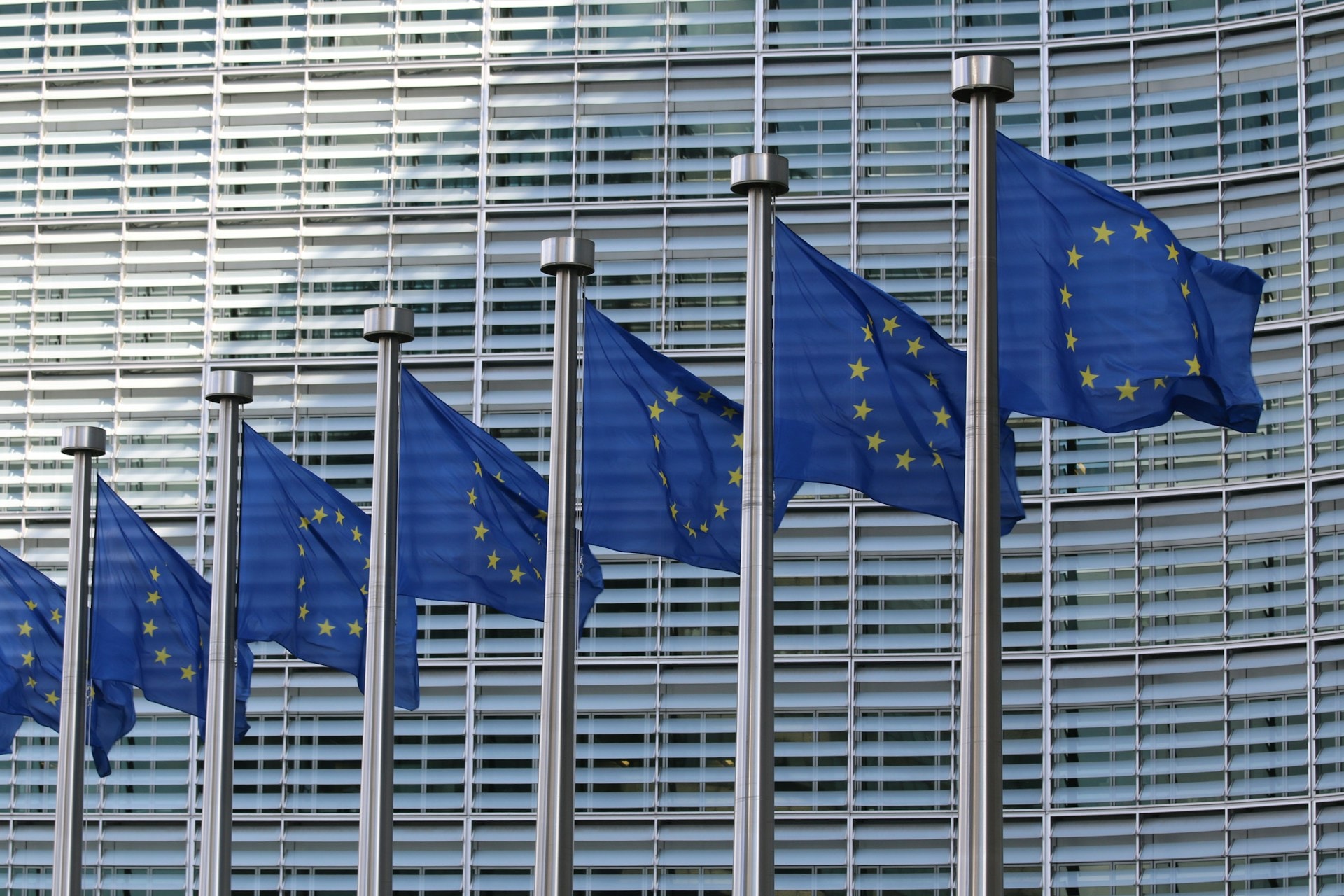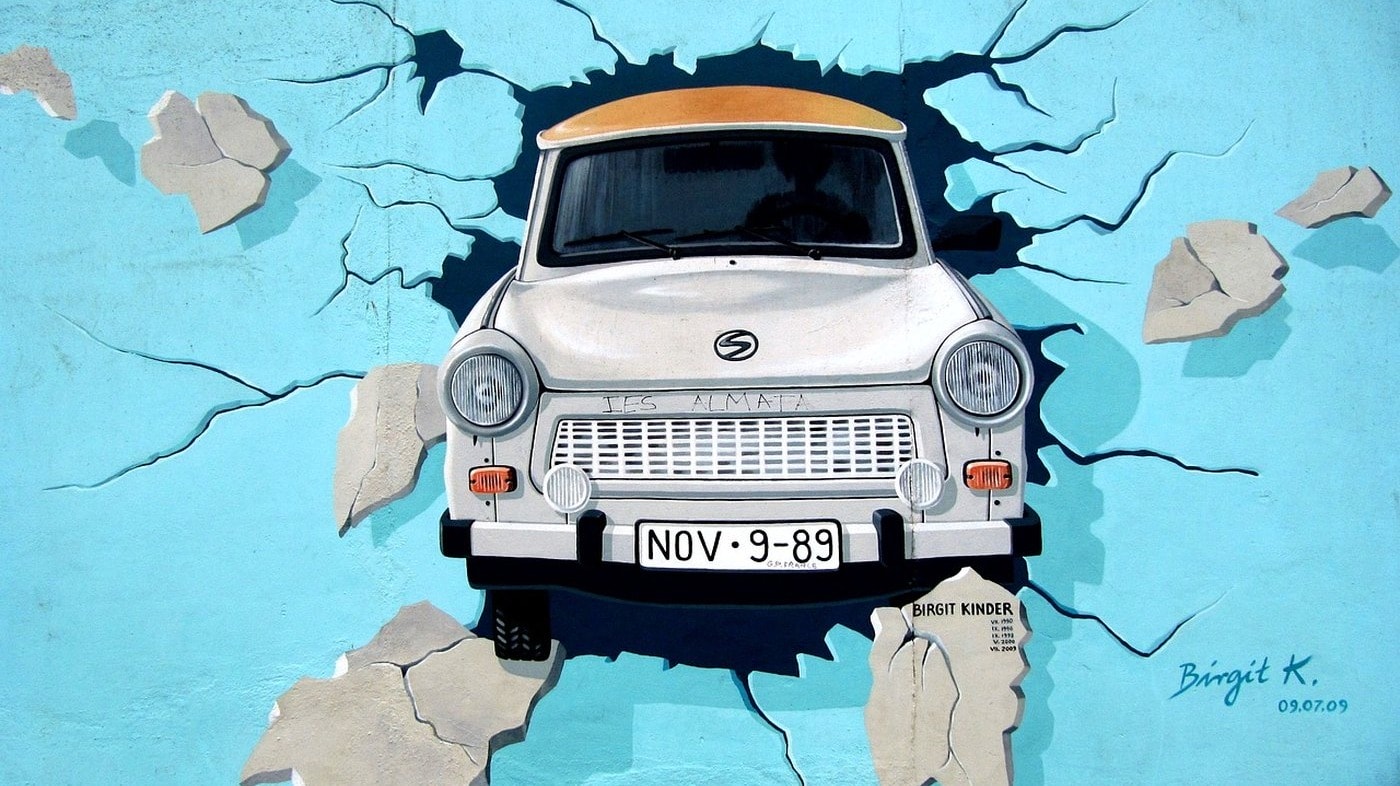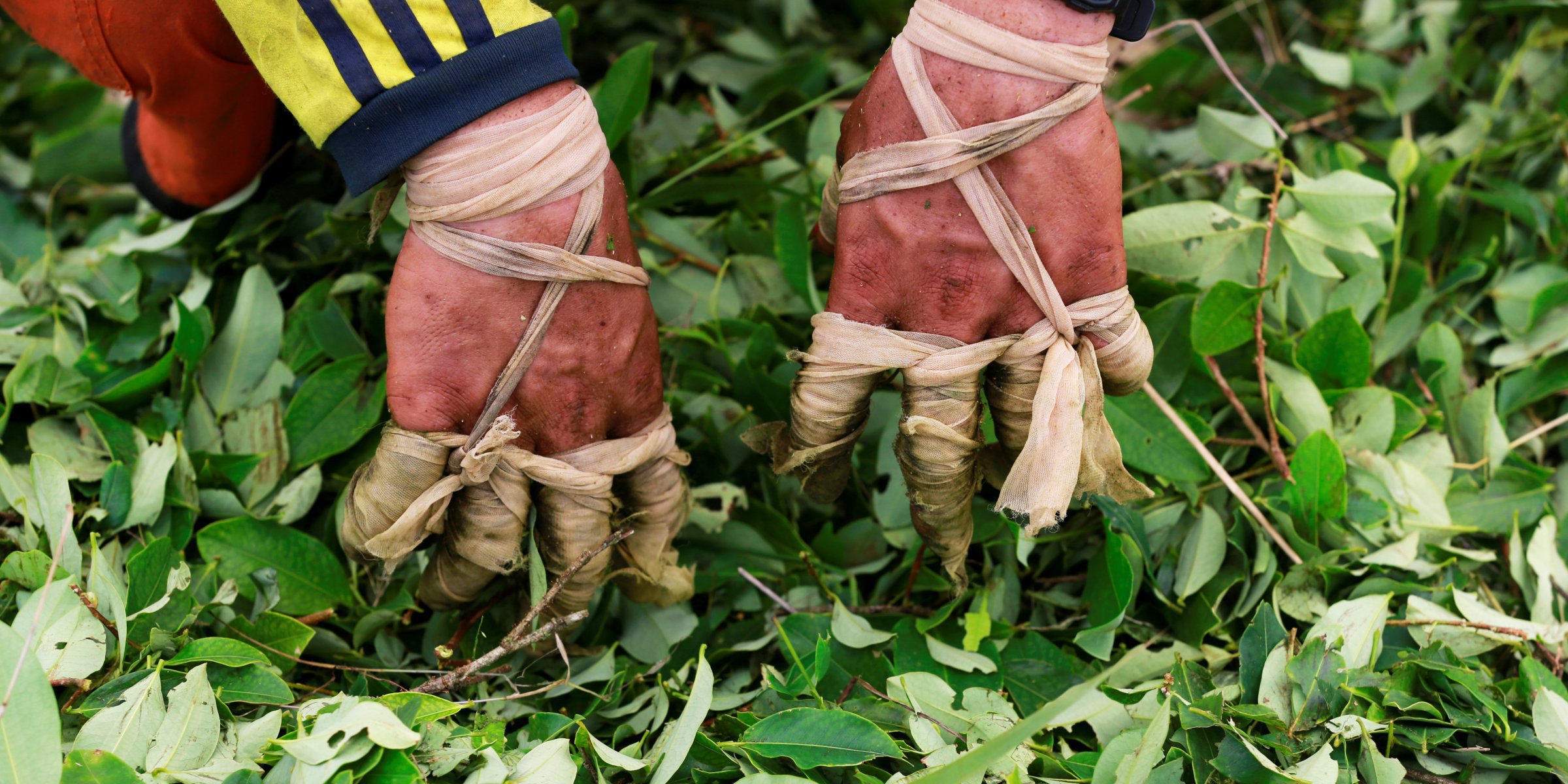Since the United Nations General Assembly adopted the Universal Declaration of Human Rights in 1948, the answer to the question whether every human being enjoys inviolable and universally valid human rights irrespective of national origin, religion or skin colour has been affirmed, at least in theory. In practice, it is a different matter, as British QC Ben Emmerson knows, who was UN Special Rapporteur on Counterterrorism and Human Rights until 31 July 2017 and has advocated internationally for the observance of human rights, which are frequently undermined, for more than 25 years.
When I asked him how it all began, I got a surprising answer. It was less the desire to become an attorney that led Ben Emmerson to study law than the wish not to become an accountant when he was faced with the choice. During the general strike of the mineworker’s union in England 1984-1985, Emmerson was first confronted with the existential problems of workers, who lost not only their work place but also a perspective for the future because of Thatcher closing the mines in the course of her neo-liberal economic policy. For Emmerson, the law had become a battleground for the protection of the underprivileged and dispossessed. In London, we talked about his life and the difficult situation of human rights taking a close look at the details.
Sarah Schuster: Today, you are one of the world’s most renowned human rights lawyers. When in your life did you know that this is the field you want to pursue?
Ben Emmerson: We didn’t really use the term human rights lawyer when I started out. People didn’t aspire to become a “human rights lawyer”. People spoke rather in terms of civil liberties than human rights, which is an interesting and subtle distinction because civil liberty is the idea that you have certain freedom under the law and the other is about the notion that you have absolute fundamental rights that you can enforce through the law, which is a different starting point philosophically. From quite early on in childhood, I used to find two things particularly motivating: one was hypocrisy or abuse by those in authority. It could start with teachers. It moved on to what you can read in the newspaper. I remember the age when I learned about the Holocaust and other kinds of human rights abuses like slavery, that is a collective abuse of power inflicting grave harm on large numbers of people for no reason other than the colour of their skin, religion or ethnicity. It completely changed my world vision. I was drawn to try to add something to address the worst wrongs. And the other part of it was the desire to identify with the underdog – the person who is in the most vulnerable position and to try to protect and support them.
What role does guilty or innocent play in human rights law?
B.E: The theory, the ethics of our profession is that we should defend somebody against any charge, whether guilty or not guilty. In practice, people tend to choose what side they want to be on, whether they are typically career prosecutors or career defenders. I was a career defender. In England, this is called the cab rank rule. It’s based on the idea that if there is a queue of people waiting at the cab rank, the taxi comes along and he has to take the first person, even if they are just going around the corner. He can’t go along the line and choose somebody who is going to the airport. It’s first come first served. That is one of the ethics of the English bar that you can’t say, well, I’ll go to the next chap who I think might be more easy to defend. You are supposed to take any case within your area of competence regardless of whether you disapprove of what the client is alleged to have done or whether you think the client did or didn’t do it. Your job is to act as a mouthpiece.
European Court of Human Rights and the International Court of Justice
You took over challenging cases by starting your career defending the underdog, for example, unjustly treated by the police. You then moved on to deal with even more challenging cases in an international context before the European Court of Human Rights and the International Court of Justice. What inspired you?
B.E: Around 2004, I was approached by a team of lawyers who were representing a man called Ramush Haradinaj, who was the Prime Minister of Kosovo and had been indicted by the war crimes tribunal in The Hague. I had always thought to myself if ever I were to do war crimes trials in The Hague, I would be likely to be on the prosecuting rather than the defending side. But suddenly here was this case. I did my due diligence and I came to realise that in the case of the Kosovo Liberation Army resisting Milošević’s Serbian troops that planned genocide in Kosovo, we were dealing with something like putting the leader of the French resistance on trial at Nuremberg alongside the Nazi war criminals. The desire to be even-handed had meant that the leader of a guerrilla army of farmers with pitchforks and shotguns doing their best to ward off a Soviet equipped army from slaughtering and depopulating Kosovo of majority ethnic Albanian population was being treated on a par with those who planned the genocide. It very quickly became clear to me that this was a case that I should not feel qualms about defending. Then I met the man and became convinced that he was a genuinely honourable fighter, that he may, like any other person engaged in armed conflict at the front end, have been responsible for killing people. But that is what war is about.
The determination of guilt in the event of an armed conflict is a difficult one. Is there a higher principle involved?
B.E: There are two answers to that question. I would have always called myself naturally and by inclination a pacifist, somebody who is opposed to war in all of its forms. But over the years of exposure to people who’ve been engaged in armed conflict you come to realise that there are circumstances where there is no alternative but to stand and fight. The Kosovo Albanians had no choice. They either had to stand and fight back or they were going to be annihilated. In those circumstances, it is impossible to talk about fine philosophical distinctions. But what you do have to do, and that is the second part of the answer, is to stick to the basic principles of humanitarian law. These are not complicated. It’s true that there are some areas that have become perhaps unnecessarily complicated but the basic principle is simple. You don’t target civilians and you try to take all necessary precautions to avoid civilian damage. If civilians are killed, you make a decision that the military target is so important that the killing of some civilians is inevitable and then you must ensure that you are not killing disproportionate numbers of civilians. It’s the emergence of a body of law at Nuremberg since the Second World War, which is designed to protect those who take no part in the armed conflict. This is a very simple principle.
Slobodan Milošević with U.S. President Bill Clinton in Paris, 14 December 1995.
What happened in practice?
B.E: Milošević’s Serbia was determined to kill civilians or drive them out of their homes or both. They did it in Croatia, they certainly did it in Bosnia and then they did it in Kosovo, too. The idea was to depopulate the entire country of its majority population. In those situations, to fight back is nothing more or less than self-defence. This meant getting down to the nitty-gritty details. That trial continued on and off for nearly ten years. As we sit here today, Haradinaj has since been arrested again on the same charges on a warrant from Serbia by the French authorities and he is facing extradition from France to Serbia. In the international context, we have been through these cases with these trials in the most painful and agonising detail.
What do those details reveal?
B.E: The case centred on one area where large numbers of dead bodies had been found, but not as a result of a massacre, but as the result of the area becoming a dumping ground for bodies that had been killed in the breakdown of law and order that followed the Serbian invasion of Kosovo. People all had guns. Some people settled private scores and dumped the bodies there. Some people were killed unlawfully without a doubt by one side or the other. Bodies were all dumped in the same place. In order to ascertain the true picture of what happened and, therefore, to show the innocence of the commander of the Kosovo Liberation Army, it was necessary to conduct 170 different murder trials one after the other. Each bone, each foot bone, each skull had to be united with its partner by DNA analysis, so that you could discover how many people there were and who they were. Then there would be an investigation of how they disappeared and who had seen them last and whether they had been abducted by soldiers, and if so, what the soldiers were wearing, what they said and who they were. How had they been killed? One of the most shocking parts of it for me at the time was that all of the female victims had been shot dead deliberately targeted with a gunshot wound through the pelvis. This was sex crime in war. It was a very gruesome process. I used to wake up at night having dreams of lying under piles of bones.
What you did bone for bone is recreating a story that had not yet been told, like a storyteller.
B.E: Exactly, or the process is the storyteller. I was very relieved and encouraged as the trial moved on and the story enfolded to discover that nothing came out to suggest that Haradinaj was a war criminal. In the end, I was convinced of what I had hoped at the beginning, which is that he was actually a war hero and someone who had the support of his people for good reason. Now I sit as a judge of the International Criminal Tribunal for the former Yugoslavia and the International Criminal Tribunal for Rwanda looking into some of the worst cases there on appeal and after trial. By the time it gets to that point it’s still very shocking but it’s less an analysis of the evidence in detail than there had been in trial. What you’re looking at then is what the evidence adds up to. But it still weighs heavily as a responsibility. There were times when it’s hard not to feel a great sense of sympathy for the victims. You have to, as a judge, try to put all forms of sympathy and prejudice to one side and be objective. But judges are human.
Is it easier in a sense that you already know the storyline?
B.E: No. We try to piece together what the evidence shows and whether the judges in the first trial made the right decisions on the basis of the record of the evidence. Sometimes it will happen that the judges of the first instance have reached a conclusion whether guilty or not guilty, which on a very close analysis of the evidence is not a fair analysis of what is shown. And so there are sometimes appeals against convictions and there are sometimes appeals against acquittal. Either can happen. It is always in the detail. Pushing or pinning criminal liability for mass murder on an individual requires a very high standard of proof. If you have an armed force that commits war crimes it doesn’t follow that every member of the hierarchy of that armed force is necessarily a war criminal. It is always about looking at the participation and the state of knowledge and the actions of the individuals in careful detail.
Do you think that in the context of terrorism and counterterrorism we are witnessing an insidious but increasing erosion of human rights?
B.E: Since I took the mandate as UN special rapporteur on counterterrorism and human rights over in 2011, I have always stressed that in my view you can’t talk about human rights in counterterrorism without recognising that terrorism itself is a massive human rights violation. So when a state takes action to protect its citizens and those within its jurisdiction against the threat to their lives that terrorism represents, that is a human rights function. However, human rights cut both ways in the counterterrorism context. The action of effective counterterrorism is a human rights obligation on a state, but at the same time it must do so in a manner which is consistent with international law.
When we see a state like the United States perpetrating organised torture in the context of a criminal conspiracy to commit acts of torture globally authorised at the very highest levels of the Bush administration, you are looking squarely in the face of an organised international crime of systematic human rights violation.
What the last 15 years have shown us is that the worse states behave and violate human rights in counterterrorism the worse the threat of terrorism becomes. You have only got to look at the systematic violations of the rendition programme, the torture programme, the detention programme, everything from Guantanamo to Bagram air base to the photos of Abu Ghraib and so forth and the way in which these have been used as recruiting material for terrorist organisations to understand why the battle has so far been lost.
Terrorism, when I took over this mandate in 2011, meant individual attacks on individual targets. However grotesque 9/11 was, which was in my view a crime against humanity of the greatest gravity, it was still a single perpetrated attack on an individual target. What we now have is terrorist groups organised in such a way that they recruited such large numbers from all over the world. Foreign terrorist fighters are all drawn like bees to a honey pot to control large swaths of territory, have pseudo-governmental structures in place, fracture the territorial integrity of states and destroy their borders and at the same time represent probably the greatest threat to international peace and security that the world currently faces.
Clearly, the steps that we have taken to attack terrorism of the Al-Qaida brand were not successful. They may have destroyed what people call the Al-Qaida central, the group that surrounded Osama bin Laden, but they have lost ground in the longer term to organised terrorist groups now in control not only in Syria and Iraq but in parts of Nigeria, in Libya, in countries right across the Middle East and North Africa. We are engaged in full-blown armed conflict in those areas.
How would you define that development? And what are the consequences?
B.E: The distinction between terrorism on the one hand and armed conflict has blurred and the two are now working side by side. It is what you would call asymmetrical armed conflict. I came into it through two different routes, one was the law of armed conflict and the other was counterterrorism.
The two have now converged. And in fact, in the report that I presented to the Human Rights Council, I made recommendations for a complete reform of the UN’s structure for dealing with terrorism in order to ensure that present reality is reflected adequately in the institutional arrangements that the UN has got in place, which at the moment it is not.
Human Rights Council – Geneva
Do you believe in a further increase of erosion of human rights in the course of counterterrorism?
B.E: I’m a firm believer in the proposition that all counterterrorism measures, even counterterrorism measures against atrocities like those committed by ISIL which amount to genocide in some cases, should be conducted in compliance with international law. And that means first and foremost in the counterterrorism context the duty to ensure that we don’t create more terrorism and, therefore, put our own citizens and others at risk by pursuing strategies that violate human rights. Indeed, in the end it’s the only productive and logical way to proceed to tackle terrorism in all its manifestations. Not just to look at the military and security end of the problem but to look at the conditions conducive to the spread of terrorism in the first place, one of which we know is the violation of human rights of those suspected of terrorism. If your aim is to reduce the threat of terrorism, you don’t achieve that by violating the rights of those you suspect.
Defendants’ rights play a big role when you consider that there is no time limit for detention of terrorist suspects even without evidentiary grounds. People may sit in detention for months…
B.E: Or years. That’s part of the problem, but so too is the often-neglected area of the rights of victims of terrorism. I think people often see fair trial rights as being rights that belong to the suspect but there are also rights that belong to the victims. I worked with a lot of groups representing victims of terrorism. Indeed, I did a big report for the UN on what the international rights of victims ought to be in terms of prevention, investigation, participation in the criminal justice system, compensation, other forms of reparation, social support and so on. The one thing they are not asking for is more torture. They are not asking for more pre-trial detention, secret detention or detention without trial, because the victim’s ultimate objective is the right to truth.
You don’t achieve the truth by torturing false confessions out of people or by trailing them in secret unfair trials in prisons buried deep in Guantanamo Bay. You achieve the right to truth through a fair transparent and open process, in which everybody can have confidence that the right person is being convicted and not just someone who will fit the bill at any given time. We have been through, now over the last five, six years, one of the most grotesque wars in Syria, in which all efforts by all states to intervene have been inconsistent all the time. One minute attacking Assad, one minute attacking his opponents, sometimes doing both at the same time. It seems we have learned little about how to prevent wars and bringing them to an end. We know what the law is about prosecuting war criminals but even now, the UN is not in a position to get its act together to see the perpetrators of the worst war crimes in Syria brought to justice.
When you look back at all the years of experience as a human rights lawyer, UN judge and special rapporteur, would you now do anything differently?
B.E: You always do what you do according to what you know at the time. In every area of work that I have done over the years I think one of the most important things is not to allow yourself to believe that you are changing the world or bringing about some permanent lasting development. Everytime either I or the lawyers working with me have achieved a major step forward, something has happened following that for the pendulum to swing in the opposite direction. I think you can only be a human rights lawyer for the moment. It is always the responsibility of the next generation to take on the next round of challenges that will present themselves because it is a constant dialectic. It’s not a situation where the world is improving and we clean it up and everything remains then stable and static.
The next thing that happens is conflict breaks out or a different form of human rights abuse is invented. States like the United States swing back to talking about the use of torture after two presidential terms, in which it was accepted that that was an international crime that should never have happened. So, for me the critical thing is not to be drawn into the hubris of thinking you’re achieving a permanent change to the world. You just do the job that you are doing. You do it to the best of your ability. And you know that there are others who are coming after you who will do the same thing and continue that struggle. That’s it.
Do you trust that society will continue this work in the future?
B.E: There are a hundred human rights lawyers for every one there was ten years ago. It’s now a growth industry and there’s a far greater consciousness among younger lawyers of the need to incorporate human rights thinking in their work. Judges are being held on tight reins to ensure that they give full effect to the protection of human rights. Things go wrong all the time, but you only got to look to the approach of the US Courts up until now to Donald Trumps first executive order – banning immigrants from majority Muslim countries – to see that the principle of judicial and legal independence and the rule of law is alive and well in at least some areas. Not all the time and not everywhere, but it is there and available.
It is the hard work of the younger generation of lawyers now that will ensure that those battles will be fought when they need to be fought.


